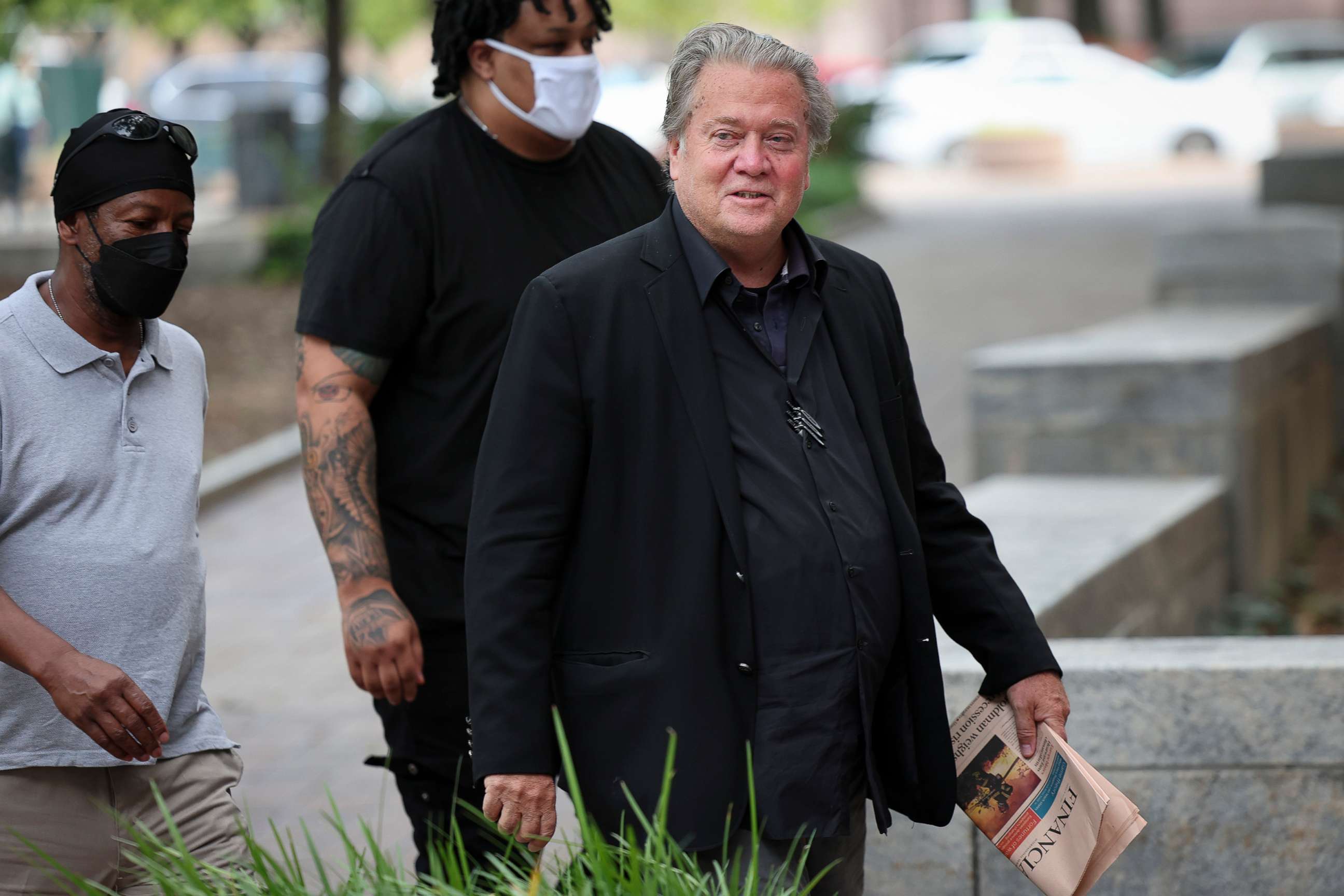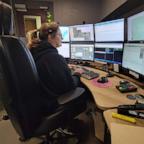A subpoena isn't voluntary, says prosecution witness
The first witness for the prosecution, Kristin Amerling of the Jan. 6 committee, testified that a subpoena is not voluntary.
Amerling, the Jan. 6 panel's deputy staff director and chief counsel, read aloud the congressional resolution creating the committee and explained that the committee's role is to recommend "corrective measures" to prevent future attacks like the one on Jan. 6.
"Is a subpoena voluntary in any way?" asked prosecutor Amanda Vaughn.
"No," Amerling replied.
Amerling also discussed how important it is to get information in a timely manner because the committee's authority runs out at the end of the year. "There is an urgency to the focus of the Select Committee's work ... we have a limited amount of time in which to gather information," she said.
Amerling noted that Bannon was subpoenaed pretty early on in the committee's investigation.

She said the committee subpoenaed Bannon in particular because public accounts indicated that Bannon tried to persuade the public that the 2020 election was "illegitimate"; that on his podcast the day before Jan. 6 he made statements "including that all hell was going to break loose, that suggested he might have some advance knowledge of the events of Jan. 6"; that he was involved in discussions with White House officials, including Trump himself, relating to "strategies surrounding the events of Jan. 6"; and that he had been involved in discussions in the days leading up to Jan. 6 with "private parties who had gathered in the Willard hotel in Washington, D.C., reportedly to discuss strategies around efforts to interfere with the peaceful transfer of power or overturning the election results."
"Is that something that would have been relevant to the committee's investigation?" Vaughn asked.
"Yes, because the Select Committee was tasked with trying to understand what happened on Jan. 6, and why," Amerling replied.
Amerling will be back on the stand Wednesday morning when the trial resumes.





